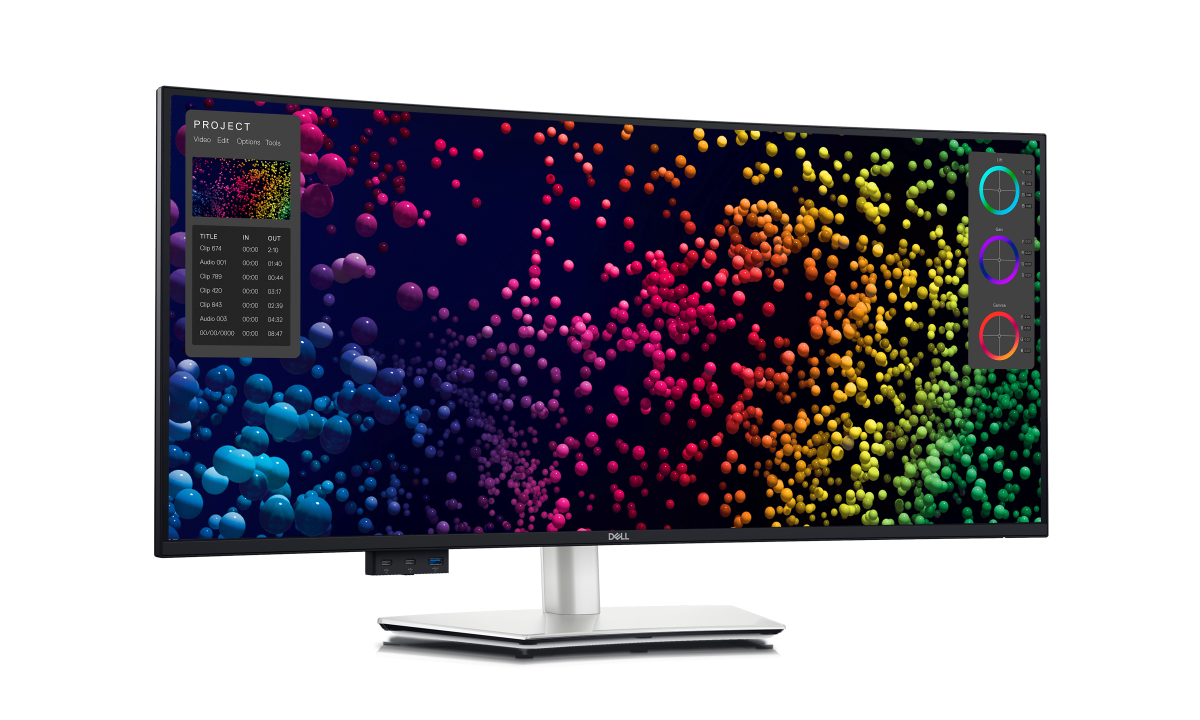Dell's CES UltraSharp displays show a move toward Thunderbolt

 Image: Dell
Image: DellAt CES 2024, Dell is debuting a pair of UltraSharp displays that can use a Thunderbolt interface to directly connect to your laptop, combining both high refresh rates and high resolution for improved content creation.
Dell is launching both the Dell UltraSharp 40 Curved Thunderbolt Hub Monitor (U4025QW) and the Dell UltraSharp 34 Curved Thunderbolt Hub Monitor (U3425WE). The 40-inch U4025QW will ship on February 27 for $2,399.99, while the 34-inch U3425WE will ship on the same day for a much more reasonable $1,019.99. They’re tilt-, swivel-, and height-adjustable.
Dell’s new displays support Thunderbolt 4, which make them worthy replacements for a Thunderbolt dock, a peripheral that gained prominence during the pandemic. Each display supports both a dedicated HDMI 2.1 input as well as DisplayPort 1.4, but you’ll be able to plug into each display with a Thunderbolt cable if you wish, too. Dell is claiming “up to” 140W power delivery for the new UltraSharp family, so that Thunderbolt cable will power your laptop, meaning you’ll be able to leave your USB-C charger at home.
Otherwise, the 40-inch U4025QW has impressive specs: a 5K (5120×2160) resolution, plus a 120Hz refresh rate. It also includes a slightly less impressive VESA DisplayHDR 600 certification along with IPS Black Panel technology: the Dell-LG partnership to improve the display’s contrast ratio. (We saw this in an earlier Dell display, the Dell U3223QE, to great effect.) It also boasts a 99 percent DCI-P3 color space, 100 percent sRGB, and 100 percent BT709, adjustable with Dell’s Color Management software.

Dell
Dell
Dell
The 34-inch U3425WE is slightly less capable, with a 3440×1440 resolution that also offers a 120Hz refresh rate. Here, the display supplies just 90W, which will still be more than enough for a typical laptop.
Both displays also include an ambient light sensor to lighten and dim the display to minimize power usage and lower eye fatigue. Dell also tweaked its ComfortView Plus technology to minimize blue light to just 35 percent, down from 50 percent. Dell’s Display Manager also appears to support a built-in KVM (keyboard-video-mouse) capability as well.

Dell
Dell
Dell
Dell isn’t explicitly naming all of the ports that the two displays include, though they appear to be the same for both: There is an HDMI 2.1 port as well as the DisplayPort 1.4 connection, together with three USB-C ports and four USB-A ports on the underside of both displays, plus 2.5Gbps Ethernet. The front of the monitors have a pop-out panel with three more: two 10Gbps USB-C ports, and a 10Gbps USB-A port. Dell hasn’t said anything about whether those ports offer charging capabilities, although at least one port on the dock offers 15W charging.
We’ve tried out Thunderbolt and USB-C displays in the past, and they definitely decrease clutter while mitigating the additional cost of a USB-C dongle or Thunderbolt dock. It looks like the trend may be taking hold?
Author: Mark Hachman, Senior Editor

As PCWorld’s senior editor, Mark focuses on Microsoft news and chip technology, among other beats. He has formerly written for PCMag, BYTE, Slashdot, eWEEK, and ReadWrite.
Recent stories by Mark Hachman:
VESA’s new HDR spec makes low-end monitors less miserableThis 5-screen portable battlestation feels perfect for Las VegasThere will be a massive change in how you buy monitors in 2024








